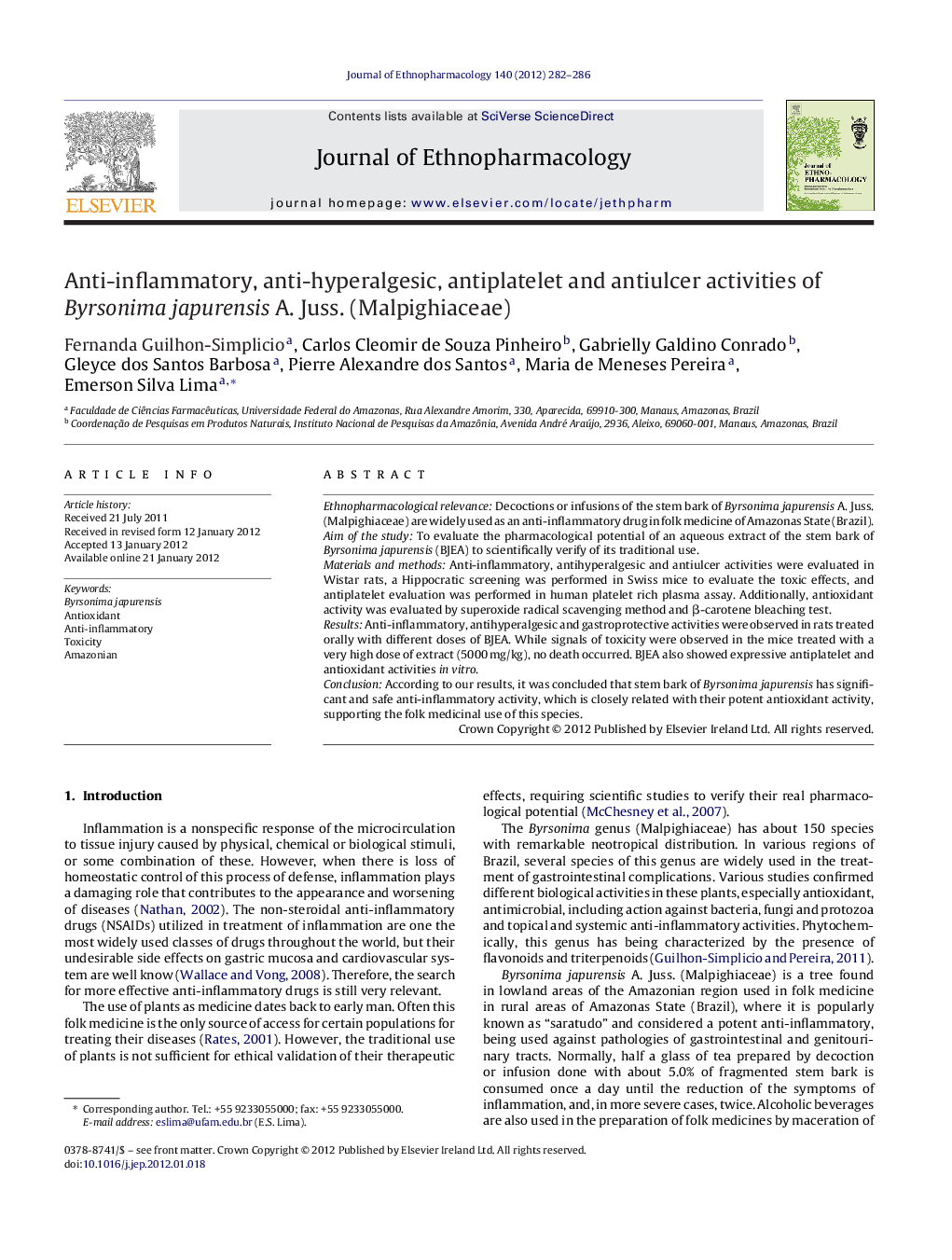| Article ID | Journal | Published Year | Pages | File Type |
|---|---|---|---|---|
| 5839169 | Journal of Ethnopharmacology | 2012 | 5 Pages |
Ethnopharmacological relevanceDecoctions or infusions of the stem bark of Byrsonima japurensis A. Juss. (Malpighiaceae) are widely used as an anti-inflammatory drug in folk medicine of Amazonas State (Brazil).Aim of the studyTo evaluate the pharmacological potential of an aqueous extract of the stem bark of Byrsonima japurensis (BJEA) to scientifically verify of its traditional use.Materials and methodsAnti-inflammatory, antihyperalgesic and antiulcer activities were evaluated in Wistar rats, a Hippocratic screening was performed in Swiss mice to evaluate the toxic effects, and antiplatelet evaluation was performed in human platelet rich plasma assay. Additionally, antioxidant activity was evaluated by superoxide radical scavenging method and β-carotene bleaching test.ResultsAnti-inflammatory, antihyperalgesic and gastroprotective activities were observed in rats treated orally with different doses of BJEA. While signals of toxicity were observed in the mice treated with a very high dose of extract (5000 mg/kg), no death occurred. BJEA also showed expressive antiplatelet and antioxidant activities in vitro.ConclusionAccording to our results, it was concluded that stem bark of Byrsonima japurensis has significant and safe anti-inflammatory activity, which is closely related with their potent antioxidant activity, supporting the folk medicinal use of this species.
Graphical abstractDownload high-res image (160KB)Download full-size image
